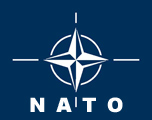Baltic states back NATO stance on Georgia and Ukraine
 Riga - Senior officials from the three Baltic states of Estonia, Latvia and Lithuania welcomed NATO plans to bring Georgia and Ukraine into the military alliance without a special "fast- track" scheme Wednesday.
Riga - Senior officials from the three Baltic states of Estonia, Latvia and Lithuania welcomed NATO plans to bring Georgia and Ukraine into the military alliance without a special "fast- track" scheme Wednesday.
Georgia and Ukraine had hoped to secure Membership Action Plans (MAPs), which would be the next step in achieving full membership, but NATO decided at a meeting in Brussels on Tuesday not to grant MAPs until further reforms had been completed.
As recently as November 27, the Lithuanian parliament adopted a resolution calling on NATO to give MAPs to Ukraine and Georgia.
Latvian Foreign Minister Maris Riekstins backed NATO's decision, describing the situation as "Bucharest plus" in reference to assurances given at April's Bucharest summit that Georgia and Ukraine would ultimately become NATO members.
"At this meeting it was unanimously acknowledged that the Bucharest decision is being reinforced and is still in force. Ukraine and Georgia, however, still have a way to go to qualify for NATO membership," Riekstins said.
"For instance, the parliamentary crisis in Ukraine does not facilitate decisions that are necessary for reforms," Riekstins added.
Estonian Foreign Minister Urmas Paet admitted he would have been in favour of granting MAPs to Georgia and Ukraine, but said the work of NATO-Ukraine and NATO-Georgia commissions was an acceptable compromise.
"The main thing is substance, and it is now important to support the continuation of Ukrainian and Georgian reforms," Paet said.
Lithuania's representative at the Brussels meeting was Foreign Ministry Undersecretary Zygimantas Pavilionis.
Acting Foreign Minister Petras Vateikunas, who is due to step down in coming days, did not attend.
Pavilionis emphasized Lithuanian support for Ukrainian and Georgian membership of NATO. "It is very important to maintain the Bucharest-defined integration perspective," he said.
Pavilionis had stronger words on Russia, reiterating the Lithuanian position that NATO should not resume normal relations with Russia until it has withdrawn all its military forces from Georgia.
"We need to review and evaluate all the Euro-Atlantic community's relations with Russia, and only then decide on their future," Pavilionis said. (dpa)